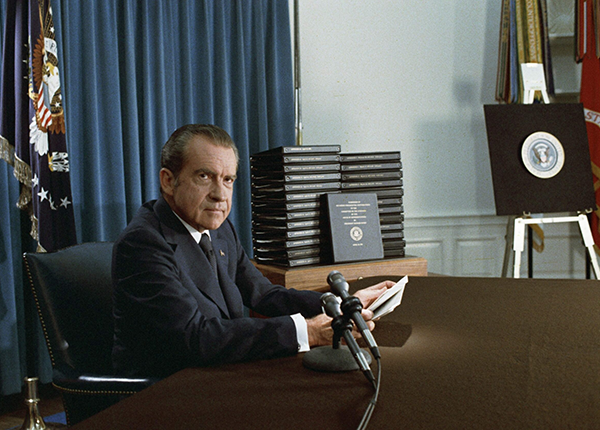Summary
When President Nixon attempted to claim privilege and quash subpoenas of potentially incriminating tapes and documents related to Watergate, the Supreme Court rejected his claim of absolute executive privilege. A unanimous Court concluded that neither the separation of powers nor a generalized need for confidential communications supported an absolute privilege. The Court set a standard of “demonstrated specific need” for enforcement of a federal criminal subpoena to the President. This landmark decision further defined the boundaries of executive privilege and clarified the process for any later lawsuits against the Chief Executive.







